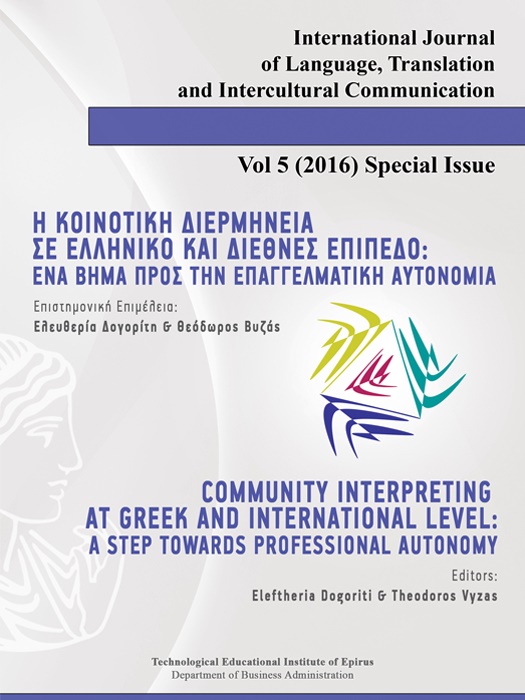Community Interpreting–oriented Terminology Management Tools.

Abstract
Unlike translators, who have a great variety of computer-assisted tools for terminology management, interpreters have not benefited from the same level of innovation. In fact, the task of community interpreter is to allow people who do not speak the official language(s) of the country to communicate
with the providers of public services so as to facilitate full and equal access to legal, health, education, government and social services. Thus, having taken into account the special needs of community interpreters, in this paper we establish a set of parameters from the conclusions drawn from the literature review to assess to what extent terminology management tools meet these needs. Then, a selection of terminology management tools are analysed. From the results, conclusions are drawn which might suggest a need to take into account new proposals in order to implement terminology management in computer-assisted tools from the view of community interpreting as well
as to inform new searching procedures used by trainees and community interpreters.
Article Details
- How to Cite
-
Antón, M. T. O. (2016). Community Interpreting–oriented Terminology Management Tools. International Journal of Language, Translation and Intercultural Communication, 5, 107–115. https://doi.org/10.12681/ijltic.10659
- Section
- Articles

This work is licensed under a Creative Commons Attribution-NonCommercial-ShareAlike 4.0 International License.
Copyright Notice
Authors who publish with this journal agree to the following terms:
- Authors retain copyright and grant the journal right of first publication with the work simultaneously licensed under a Creative Commons Attribution License that allows others to share the work with an acknowledgement of the work's authorship and initial publication in this journal.
- Authors are able to enter into separate, additional contractual arrangements for the non-exclusive distribution of the journal's published version of the work (e.g., post it to an institutional repository or publish it in a book), with an acknowledgement of its initial publication in this journal.
- Authors are permitted and encouraged to post their work online (e.g., in institutional repositories or on their website) prior to and during the submission process, as it can lead to productive exchanges, as well as earlier and greater citation of published work (See The Effect of Open Access).


